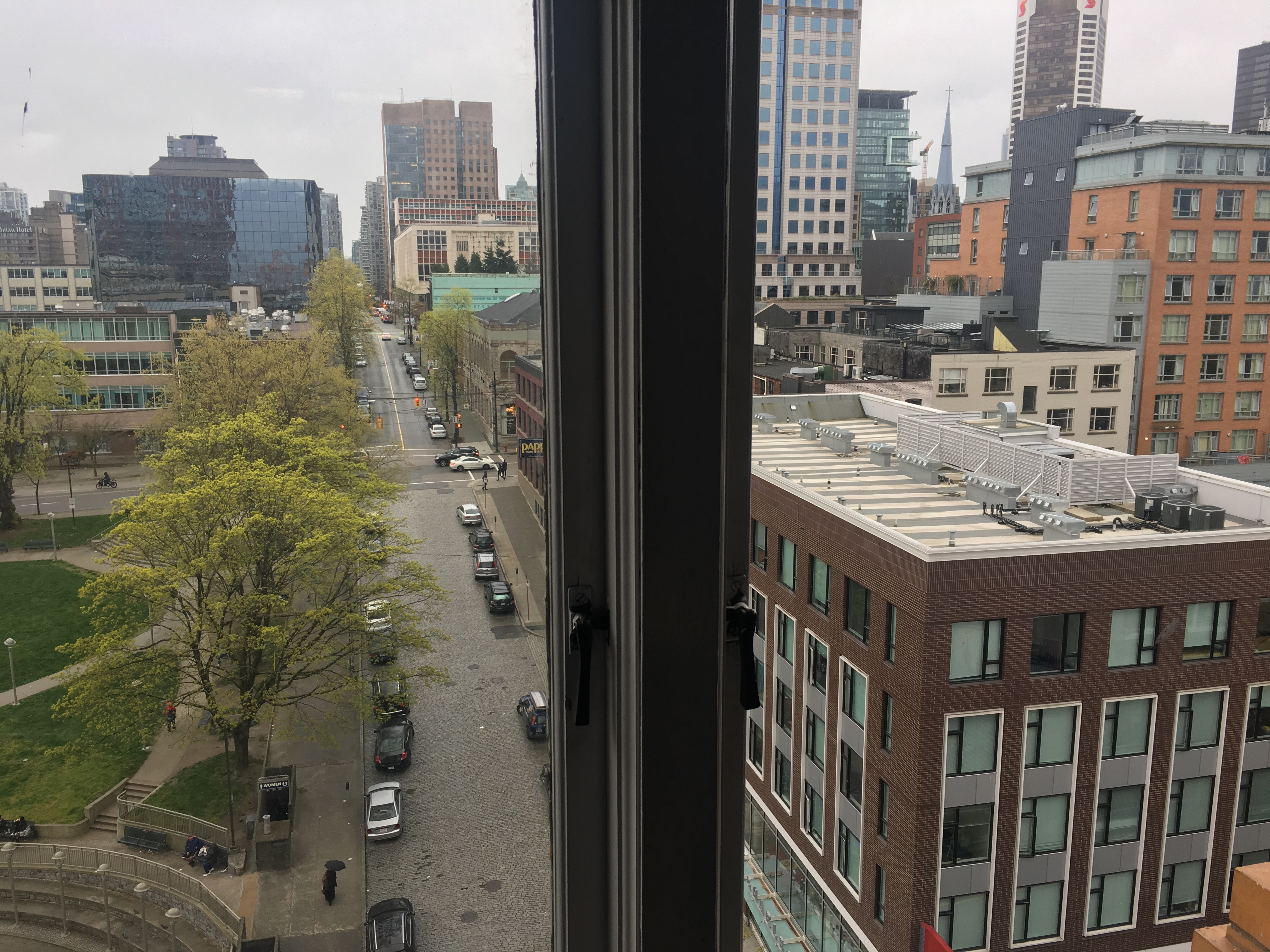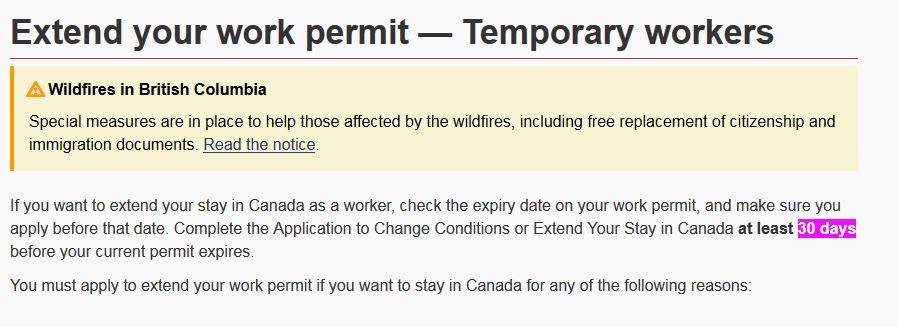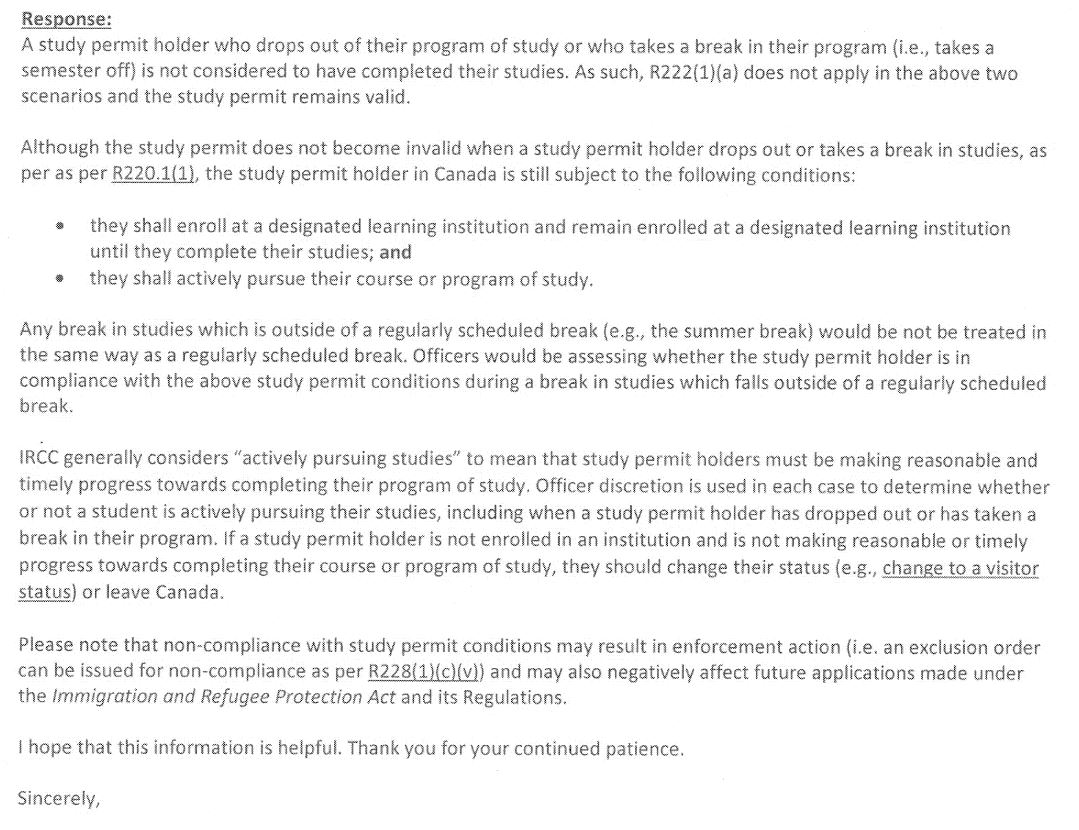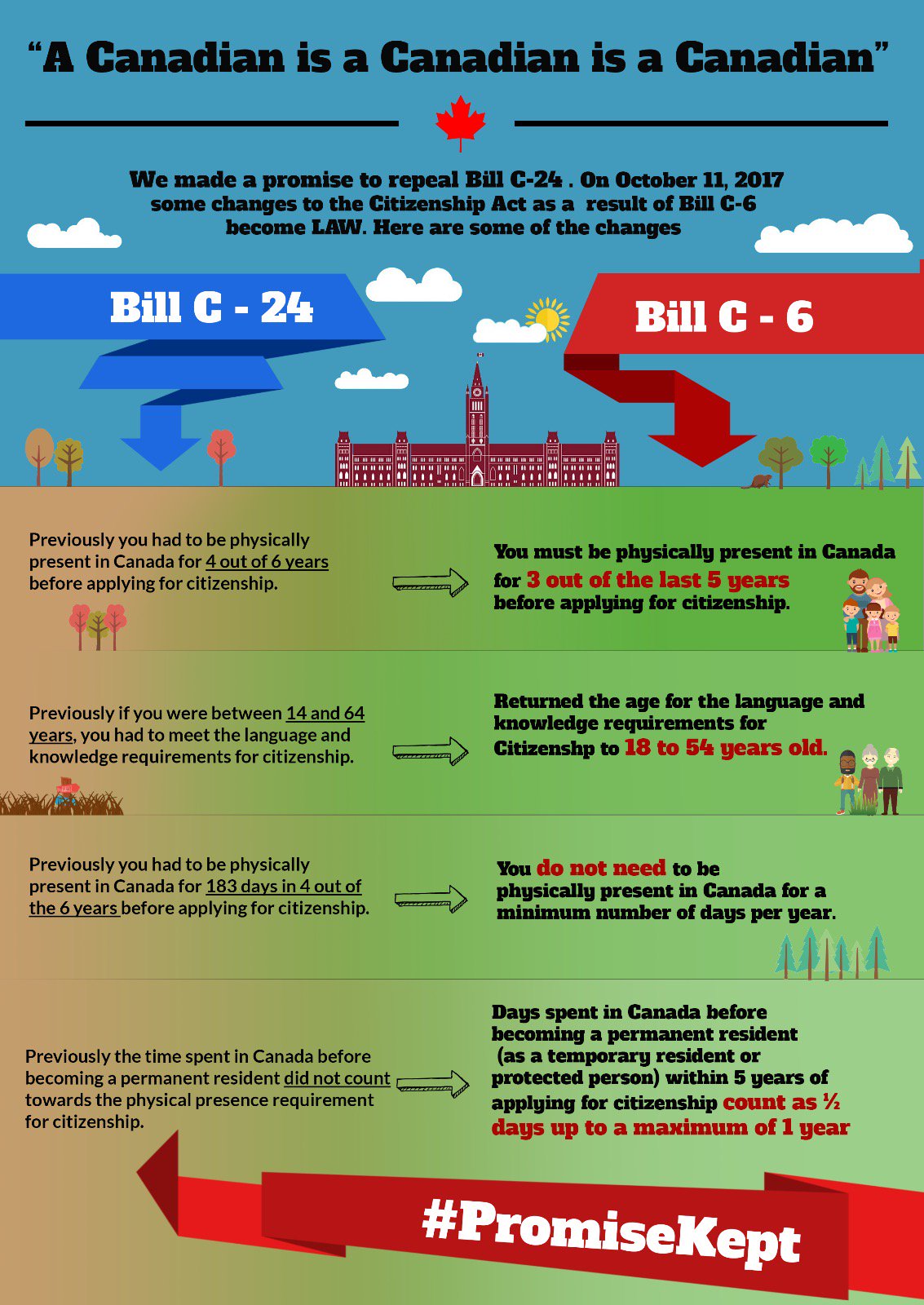The Immigration Consequences of ‘I Just Got Fired’
One of the major impetuses of my decision to switch practices and move to a new law firm was to shift my practice from providing advice mostly to employers to being able to provide advice to primarily employees and educational institutions that will grow future graduates.
I believe it is absolutely crucial for all temporary-foreign workers (“TFW”s) whether they are working on an open or a closed work permits in Canada to have access to independent legal advice as it pertains to their Canadian employment. There are several benefits to this. First, I find many TFWs are not fully aware as to their different pathways to permanent residence. Many, erroneously, assume it is entirely dependent on their employer when in sevearl cases it is not. Still others are kept in the dark as businesses make plays and decisions that have direct impacts on their future in Canada. They are merely asked to sign forms and renew permits – steps that without context could lead to a lack of a full understanding of their legal rights and future opportunities.
Among these major decisions with major consequences is the termination of employment while an individual is in the process of applying for permanent residency, the issue I will examine in this article.
Two of the most common permanent residency pathways that termination of employment could affect are the (1) the Express Entry route, where there is a qualifying offer of arranged employment; and (2) the Provincial Nomination route – which in some provinces is either operated in conjunction with Express Entry or else is a separate process involving a paper-based Permanent Residence Application sent to Sydney-NS that can take a year to several years to process. For the interest of space and due to my own personal familiarity, I will deal with only the BC PNP context. Each Province may have different processes and I would encourage you to familiarize yourself with these internal workings.
Express Entry – Qualifying Arranged Offer of Employment – What Happens When I Get Fired?
One of the first things to avoid is the ‘panic.’ Too often mistakes are made when fear takes over – and inquiries are made to Immigration (especially via the call centre) or even CBSA/border officials without a plan in place.
Before packing one’s bags, it is important on a short-term basis to determine (a) whether you still have the ability to work; and (b) is there a need to obtain work in the near and immediate future vis-a-vis the Express Entry PR application.
Much of this may depend on where you are at in the PR process. For starters, if your Express Entry score is not relying on an arranged offer of employment, your termination likely means very little to your application. Your score will not be negatively affected assuming it was locked in previously at the time you made your application. There is no need to actively work while holding a work permit. Even if your work permit is tied to a specific employer your main question may be whether to try and obtain a new work permit, stay in Canada on the work permit and not work, or else apply for a visitor record so as to clearly indicate you have no intention of working and are abiding by the conditions of your temporary stay.
Several individuals who transitioned off previous work permits have access to a bridging open work permit or otherwise may be on some sort of open permit such as PGWP or an accompany spouse of a student/skilled worker. An open work permit that is not employer specific of course provides flexibility in finding new employment in the event of termination.
If, you are relying on the arranged offer of employment and it’s 50/200 points, you arguably will have to take proactive steps. Indeed, it is my more conservatively-based strategy to update IRCC within a reasonable time on the change in circumstances.
I take this strategy because of my strict interpretation of s.29(3) of the Ministerial Instructions respecting the Express Entry System (17 October 2017) to require ongoing updates. Similar to where a provincial nomination is revoked (we’ll discuss this shortly), the MIs state as follows:
Loss of offer or inability to perform duties
(3) If the offer referred to in subsection (1) is revoked or ceases to be a qualifying offer of arranged employment or if the foreign national is unable to perform the duties of the employment or is unlikely to agree to perform them, the foreign national is no longer entitled to the points assigned under subsection (1) in respect of that offer and the total number of points assigned to the foreign national under the Comprehensive Ranking System is to be adjusted accordingly.
How the adjustment is made is very material. You have to determine how your points are affected. Your example you may have been an individual selected with a draw score of 490 (50 points for arranged employment) during a draw where the minimum score was 432, for example. The 50 point subtraction in your score will have no affect on your selection. However, it is still my practice to update them proactively so as to avoid a misrepresentation finding of not disclosing a factor that could affect an Officer’s assessment. It is not my practice to gamble with the legal interpretation of ‘materiality’ of an omission where proactive disclosure would have no negative consequences.
If the score is brought below the invited score (let us assume that the individual only has 460 after the 50 point deduction), I would consider whether a withdraw can be facilitated and whether there are other points gained or that can be gained that would negate the loss and facilitate a new profile, selection, and application. Before requesting a withdrawal, it may be worth figuring out the ultimate timing of the matter. For example, I have seen several cases where the loss of employment occurred after a final eligibility decision or after approval in principle/passport request that were not actioned by IRCC even following proactive disclosure.
BC Provincial Nomination Program – What Happens When I Get Fired?
In a BC PNP-Express Entry context, there is a similar provision to s,29(2) found in s.28 of the MIs which talk about the effect of a revoked or declined nomination.
Points for provincial nomination certificate
28 (1) Six hundred points may be assigned to a foreign national if they are named in a nomination certificate referred to in paragraph 87(2)(a) of the Regulations that is issued by the government of a province referred to in paragraph 2(d) of these Instructions and the nomination has been
- (a) verified by the province; and
- (b) accepted by the foreign national.
Nomination revoked or declined
(2) If the nomination certificate is revoked by the province that issued it, or if the foreign national declines the nomination, they are no longer entitled to the 600 points under subsection (1) in respect of that certificate and their the total number of points assigned to the foreign national under the Comprehensive Ranking System is to be adjusted accordingly.
BC PNP nominees are currently given documents upon receiving their nomination that clearly set out their responsibilities, including updating BC PNP upon any loss of their employment. Failure to do so could lead to revocation of the nomination.
BC PNP work permit holders who are doing paper-based applications that can take over a year and often times multiple years can often be particularly susceptible to loss of employment. Companies make a lot of decisions over a year that can affect the allocation of staff and, in particular, the future of their foreign workers.
Generally, when a skilled worker or international graduate is nominated, they are provided an R.204(c), T-13 -based work permit support letter from the Province. This can be used to support an employer specific work permit and/or work permit extension. The other option is an R.205(a) Bridging Open Work Permit (BOWP), but because of the timing of getting together a full permanent residence application and acknowledgment of receipt can be challenging, many opt for the safer first option. There is, of course, an underlying benefit to submitting a BOWP in that as an open work permit, transition to another employer (and perhaps even to another employer who can support a transfer of nomination certificate) would be easier in the event of termination. Working for an employer not listed on your work permit is an immigration violation that can lead to exclusion from Canada for a period of one year.
For BC PNP, the process is more facilitative if the Nominee is diligent in communicating with the program officer relating to the termination. Many officers have given ample time for a new employer to be arranged and for the nominee to figure out a new pathway. BC PNP also has been very supportive where a nomination/support is pulled by the employer late in the process. is The validity of a nomination, the very basis of one’s permanent residence, is a very material and that termination would require proactive disclosure. I have had clients disclose prior to landing and while it does require a quick confirmation call between IRCC and BC PNP, where BC PNP indicates they are supportive of maintaining the nomination, this has created no issue.
Failure to disclose on the other hand could create challenges. Whether it be in a future sponsorship, PR renewal, support for a family member’s visitor visa, there would be more than a few places where one’s undisclosed termination could emerge to IRCC’s attention.
Seeking Independent Advice – Employment Counsel
I often refer my clients who have been terminated to also seek. There are cases such as Nishina v. Azuma Foods (Canada) Co. Ltd 2010 BCSC 502 where an employer’s conduct vis-a-vis immigration status affected damages awards. I have been involved in a few cases where the termination of an immigrant employee was wrongful. Some clients will choose to pursue their claims while others will pursue to focus on pursuing new employment. However, if a matter goes to litigation, it would be important for non-immigration practitioners (and the Court) to know the scope of the immigration consequences.
Why are Employee’s Post-Termination Immigration Options Increasingly Important?
With IRCC and the Federal Government now putting in resources into assisting foreign workers, I suspect that this will balance out an employer compliance regime system that does not, in my […]



















